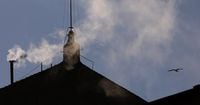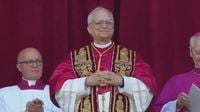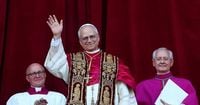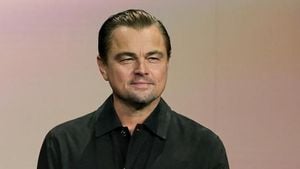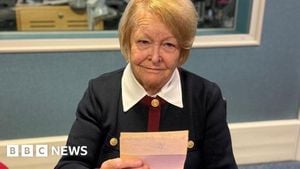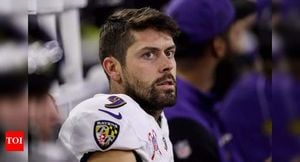On May 8, 2025, the Vatican witnessed a historic moment as the conclave, tasked with electing the new Pope, concluded its second day of voting. The conclave, held in the iconic Sistine Chapel, resulted in the election of Robert Prevost, a 69-year-old cardinal from Chicago, as the 267th Pope of the Roman Catholic Church. He will take the name Leo XIV, marking a significant milestone as he becomes the first American-born Pope in history.
As the news broke, white smoke billowed from the chimney of the Sistine Chapel, a traditional signal to the world that a new Pope had been chosen. Prevost emerged to greet the gathered faithful in St. Peter's Square, addressing the crowd with a message of peace: "Peace be with you all." The atmosphere was electric, with supporters waving flags and taking photos to commemorate the moment.
Prevost's election comes in the wake of the death of Pope Francis, who passed away on April 21, 2025, at the age of 88 due to complications from pneumonia and a stroke. Francis was known for his advocacy of a "Church of the poor," promoting diversity and progressive values within the Church. His tenure, however, was not without controversy, as it faced backlash from conservative factions within the Catholic community.
The conclave was attended by 133 cardinals from around the globe, including two from Japan, who participated in a series of secret ballots. To be elected Pope, a candidate must secure two-thirds of the votes, a requirement that often leads to intense negotiations and deliberations among the cardinals. This conclave was particularly unpredictable, with no clear frontrunner emerging among the candidates.
"This conclave was one of the most unpredictable in recent years," remarked a former official of the Vatican. The diversity among the cardinals, a reflection of the Church's global reach, added to the complexity of the election process. The presence of a significant number of cardinals from outside Europe, a shift from the past, was notable.
U.S. President Donald Trump expressed his excitement over Prevost's election, calling it a "great honor" for America. He stated, "I look forward to meeting Leo XIV. It will be a very significant moment!" Trump's comments underscore the political implications of having an American Pope during a time of global challenges.
As Leo XIV prepares to take on his new role, he faces the monumental task of restoring the Church's credibility amidst ongoing scandals related to clerical abuse. The new Pope's leadership will be closely scrutinized, particularly in how he balances the Church's traditional values with the need for reform and greater inclusivity.
Prevost's background as a missionary in Peru has shaped his perspective on the Church's mission. Appointed as Prefect in 2023, he has spent years working in diverse cultural contexts, which may inform his approach to leading the Catholic Church. His experiences are expected to resonate with the Church's commitment to social justice and outreach to marginalized communities.
As the world watches, the election of Leo XIV signifies not just a change in leadership but also a potential turning point for the Catholic Church. The challenges ahead are substantial, and the new Pope's ability to navigate the complexities of modern society will be critical in shaping the future of the Church.
In summary, Robert Prevost's election as Pope Leo XIV marks a historic moment for the Roman Catholic Church, reflecting broader shifts within its leadership and the global community. As he embarks on this new journey, the eyes of 1.4 billion Catholics and the world will be on him, hoping for a renewed vision that honors both tradition and the pressing needs of today.
